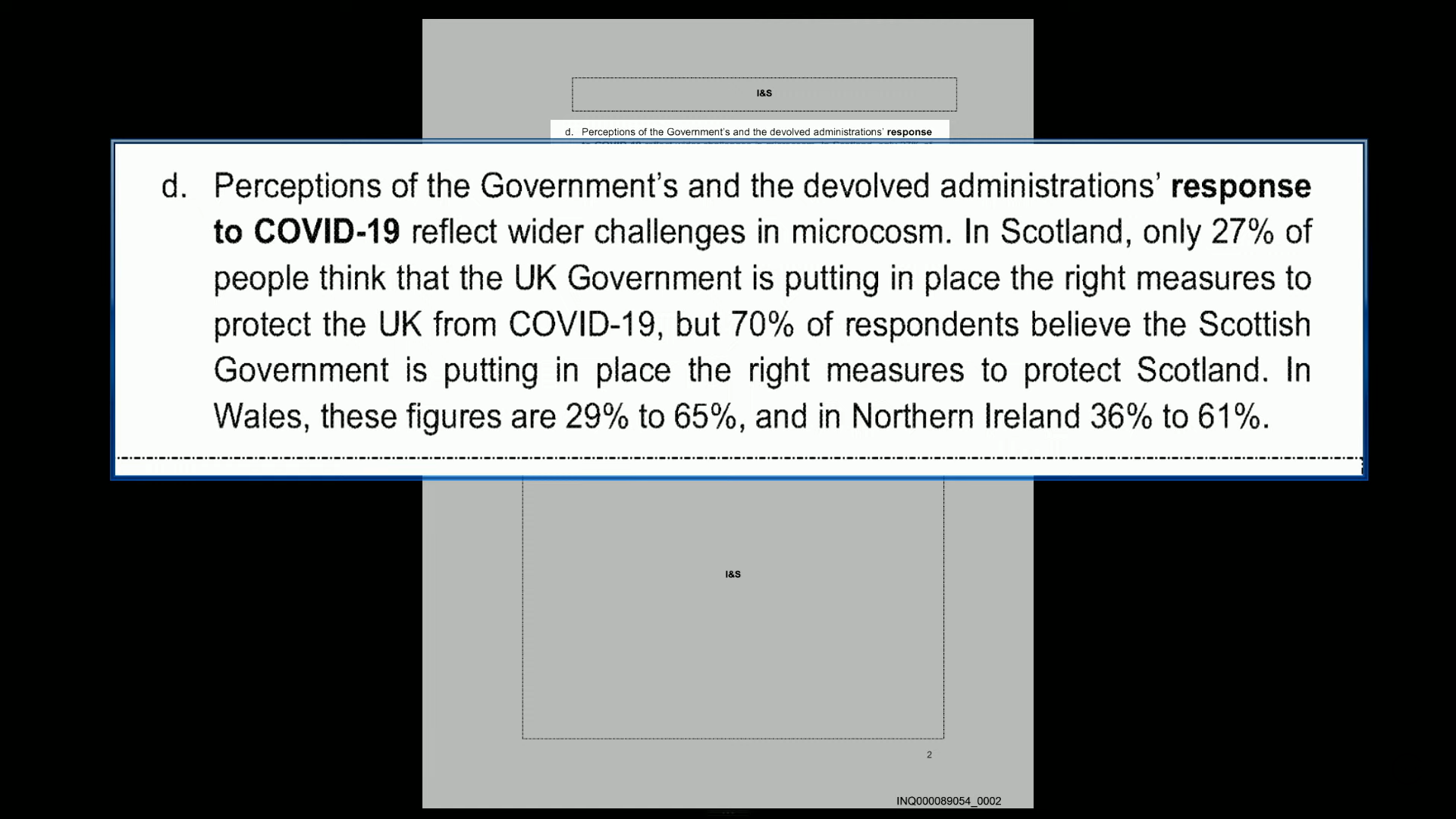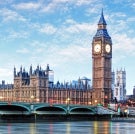Michael Gove expressed in a WhatsApp message to Dominic Cummings that the government is making mistakes.
Michael Gove has apologised to victims and bereaved families for the government’s handling of the pandemic as he listed what he believed were the failings, including locking down too late.
Today, Mr Gove is testifying at the Covid-19 Inquiry and admitting that the country was not quick enough to implement a lockdown. He acknowledges that he should have been more assertive in advocating for the measure.
He also mentioned that the tier system was fundamentally flawed, and there should have been greater consideration for its impact on children. Additionally, there were mistakes made in obtaining personal protective equipment.
At the start of the meeting, Mr Gove, who held the positions of Cabinet Office minister and chancellor of the Duchy of Lancaster at the start of the pandemic in 2020, expressed remorse to those who suffered during this time. He offered apologies to the victims who endured immense pain and to the families who experienced great loss due to the errors made by the Government in their response to the pandemic.
However, even though Mr. Gove acknowledged the mistakes made in handling the situation, he declined to criticize his former colleagues in the cabinet. He expressed his admiration for former health secretary Matt Hancock and defended Boris Johnson’s assertive decision-making style.
“We were not quick enough to implement a lockdown in March.”
According to Michael Gove, the ministers should have implemented the initial nationwide lockdown earlier and enforced stricter regulations in the fall preceding the second lockdown.
Listing what he saw to be failures, Mr Gove told the Covid inquiry: “I believe that we were too slow to lock down initially, in March.
“I feel that more stringent measures should have been implemented earlier, rather than waiting until late October.”
The former Cabinet Office minister stated that the government’s testing strategy was not thoroughly planned out.
He expressed worry about not giving sufficient consideration to the effects of our actions, especially on children and vulnerable individuals.
The inquiry heard that while the Scottish government believed they were correct in their actions, the Scottish people disagreed with the decisions made by the UK government.
Only 27% of individuals in Scotland believed that the UK government was implementing appropriate measures for Covid.
This is in contrast to 70% of Scots who believed that the government in Holyrood was making the correct decisions.
A document prepared by Michael Gove’s team during the pandemic and presented to the inquiry demonstrated an instance of “broader issues in miniature.”

A document prepared by Michael Gove’s team during the pandemic for briefing purposes.
Gove secretly approached the PM without informing others.
Michael Gove has supported circumventing traditional Government processes in an effort to convince Boris Johnson to implement pandemic measures more swiftly.
In January 2021, he reached out to Mr. Johnson directly through his personal email to express that there was no other option but to implement a strategy of maximum suppression.
When questioned about his decision to bypass traditional channels, Mr. Gove stated: “I wanted to ensure that it reached the prime minister directly and without any intervention.”
I wanted to ensure that he saw my honest opinion, clearly stated in written form.
When questioned further about his reasoning for adopting this method, Mr. Gove responded, “You requested that I reconsider if I had not been forceful enough in expressing my perspective.”
During the pandemic, there were times when I didn’t feel like myself and other times when I believed it was crucial to take extreme measures to communicate my thoughts.
Quick break
Mr Gove has been questioned by Hugo Keith KC, counsel for the Inquiry, and the questioning has concluded. After a brief pause, Peter Wilcock KC from Northern Ireland Covid-19 Bereaved Families for Justice is now posing questions.
Ministers were deemed by Michael Gove to have been too lenient and delayed in implementing restrictions.
During the Covid inquiry, it was revealed that Michael Gove stated ministers were not strict enough and acted too slowly prior to the second national lockdown.
The previous leader of the Duchy of Lancaster stated: “We must not repeat the same errors.”
The diaries of former chief scientific adviser Sir Patrick Vallance revealed the reflections.
When questioned about reflections, Mr. Gove expressed concern during the Covid inquiry that the government was permitting excessive social interaction.
The journal entry also disclosed that Boris Johnson was “concerned about Christmas”, but Sir Patrick had determined that it was already “too late”.
Gove acknowledges that Andy Burnham’s criticism of Manchester’s treatment is valid.
Michael Gove acknowledged during the inquiry that Andy Burnham’s argument about Greater Manchester being mistreated during the pandemic is valid.
During his evidence session on Monday, the mayor of Greater Manchester criticized the government for their focus on London in making decisions related to Covid and for implementing restrictions on the region without proper consultation.
“I believe that the mayor of Manchester, within Greater Manchester, has a valid argument, as did others,” stated Mr. Gove.
He expressed understanding for Mr. Burnham’s stance that stricter regulations were enforced on Greater Manchester without providing the financial support he deemed necessary.
The disadvantage of the tier system.
In October 2020, the English government implemented a tier system that imposed varying restrictions on different regions based on the level of risk for COVID-19 transmission.
Mr Gove has already said the system was flawed. Inquiry counsel Hugo Keith KC went further to ask why a better assessment of the scheme was not done before it was rolled out.
Mr Gove responded: “I was doubtful and became even more doubtful about its effectiveness. I also believed and advocated for a more England-wide approach.”
When discussing the tiered approach, we noted that the dissolved administrations acted independently, which is understandable. However, the history of the pandemic has shown that what begins in Essex does not remain contained there. Eventually, the virus spreads throughout the entire island of Great Britain, regardless of location.
The strategies of the Scottish and Welsh governments may have been more effective than the English government’s approach. However, without proper restrictions in place, the virus will inevitably spread within a given area, highlighting the weakness of the tier system.
Simply respond to the inquiry.
Baroness Heather Hallett, who is leading the investigation, has once again had to intervene in the ongoing dispute between Michael Gove and Hugo Keith KC.
During the inquiry, Mr. Keith advised Mr. Gove to simply address the question when he inquired about how the pandemic has affected the most vulnerable individuals.
Mr. Keith, clearly agitated, expressed his regrets and stated, “I apologize, but due to the limited time and your inclination to make political comments, may I kindly request that you simply answer the question?”
Mr Gove stated that the question necessitates in-depth political analysis.
Baroness Hallett stated that you are not the first politician to provide political commentary during this inquiry, as it falls between two other upcoming confrontations.
There is a conflict between Michael Gove and the lead counsel of the inquiry, Hugo Keith.
There is currently a heated disagreement between Michael Gove and Hugo Keith KC, the lead counsel for the Covid inquiry.
Mr Gove, the former chancellor of the Duchy of Lancaster, has received multiple reprimands from Mr Keith after struggling to provide clear answers for over three hours.
Mr. Keith angrily stated that he did not want to hear a lecture about the benefits of the Barnett formula, which is used to calculate the amount of money given to the devolved administrations in the UK by the Treasury.
Mr. Gove provided a thorough explanation of the formula in response to a question about the Scottish government’s request for additional funds.
Mr. Gove recounted a personal story about running into the Welsh first minister, Mark Drakeford. In response, Mr. Keith interjected, stating that it was not appropriate for Mr. Gove to provide secondhand information from another witness.
“We would like to know your opinions.”
A few minutes prior, Baroness Heather Hallett, the inquiry chair, had to intervene and end an argument between the two individuals.
There have been no criticisms made of fellow members in the cabinet so far.
Michael Gove has been testifying in the Covid-19 inquiry for over three hours. While he acknowledged errors were made and apologized for them, he has not yet spoken negatively about his fellow cabinet members.
Previously, he expressed a favorable view of former health secretary Matt Hancock, who received ongoing backlash from multiple witnesses during the inquiry. Several witnesses have voiced apprehension regarding his actions as health secretary.
He also supported Boris Johnson’s “combative” style of decision-making.
He stated that Mr Johnson should not be specifically targeted for criticism regarding the delay in implementing restrictions. He also acknowledged that other ministers and officials who did not express their belief in the necessity of earlier action should also receive their fair share of retrospective criticism.
Mr. Gove has come to the defense of two important members of the cabinet, despite acknowledging that the country was not adequately prepared for the pandemic. In a message sent through WhatsApp to Dominic Cummings, he even stated that the government was making mistakes.
The source is the website independent.co.uk.



